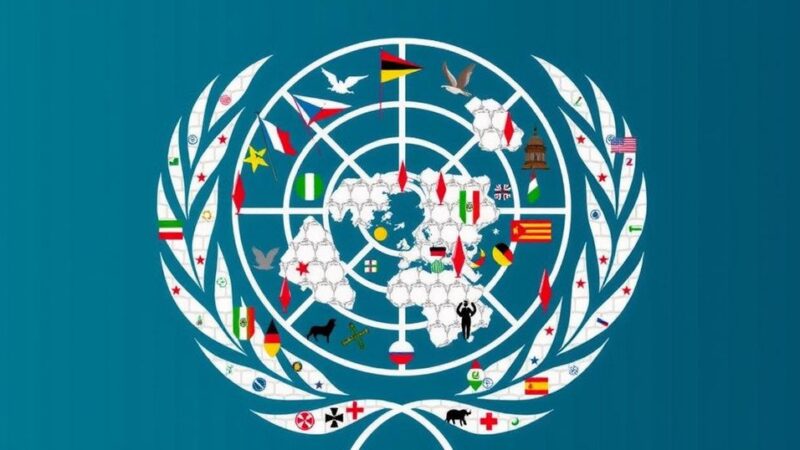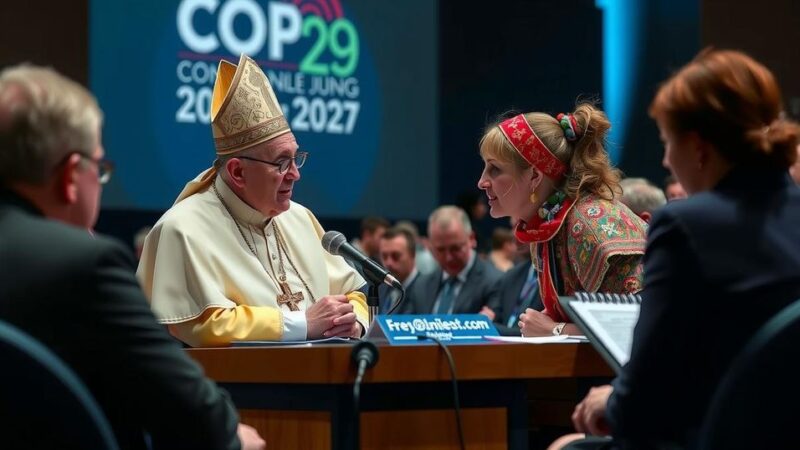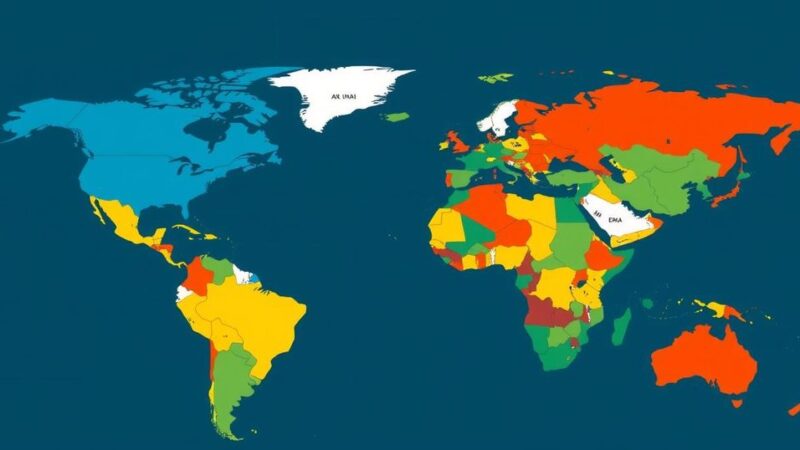The 16th meeting of the Conference of the Parties to the Convention on Biological Diversity (CBD COP16) in Cali, Colombia, highlights the urgent need for governments to address the biological impacts of fossil fuels, particularly offshore oil and gas activities. The conference theme, “Make Peace with Nature,” underscores the necessity for decisive action against fossil fuels which drive biodiversity loss, climate change, and pollution. Colombia’s leadership in supporting the Fossil Fuels Non-Proliferation Treaty positions the conference as a critical moment to focus on sustainable solutions that integrate biodiversity protection into fossil fuel policies. Key opportunities include enhancing public participation, revising biodiversity strategies, and ensuring stringent regulations against harmful offshore activities.
As global leaders convene in Cali, Colombia from October 21 to November 1 for the 16th meeting of the Conference of the Parties to the Convention on Biological Diversity (CBD COP16), this gathering presents a pivotal opportunity to tackle the detrimental impacts of fossil fuels—specifically oil and gas—on ecosystems and communities worldwide. The theme of this year’s conference, “Make Peace with Nature,” emphasizes the urgency for governments to take decisive action amidst escalating threats to biodiversity due to climate change, pollution, and habitat destruction. However, achieving harmony with nature remains challenging until governments confront the central issue of fossil fuel dependency, which is a significant contributor to the ongoing planetary crisis, encompassing climate change, biodiversity loss, and toxic pollution. As the host, Colombia, a proponent of the Fossil Fuels Non-Proliferation Treaty (FFNPT), holds a critical role in urging participating nations to recognize and address the urgent need for action against the oil and gas sector during these negotiations. Offshore oil and gas activities pose a serious threat to marine biodiversity, accounting for over 30 percent of the global oil and gas industry, a figure that continues to grow amid new liquefied natural gas (LNG) production ventures. These industries not only exacerbate global warming but also pollute marine environments and jeopardize the livelihoods of coastal communities and Indigenous Peoples. The role of marine biodiversity is indispensable in sustaining a healthy planet, influencing fisheries, climate regulation, and the preservation of cultural heritage. Unfortunately, offshore oil and gas exploitation disrupts these essential ecosystems through various harmful processes, including seismic surveys that harm marine mammals, regular oil spills, and increased vessel traffic that contributes to pollution and threatens pristine habitats. Despite their substantial impact on biodiversity, discussions regarding offshore oil and gas continue to be largely absent from the global narrative on biodiversity conservation. The legal framework established by the CBD must prioritize the phase-out of fossil fuel extraction, especially offshore, to realize its conservation objectives satisfactorily. At COP16, delegations will scrutinize the measures they have undertaken towards biodiversity strategic goals, but without tackling fossil fuel-related operations, attaining crucial targets will remain unattainable. The Global Biodiversity Framework (GBF) seeks to halt biodiversity decline through a series of ambitious targets that necessitate the inclusion of offshore oil and gas operations in discussions and strategies. Targets concerning habitat conservation and ecosystem restoration are particularly vulnerable to failure if decisive actions against these sectors are not taken. Colombia’s leadership at COP16 provides a pivotal avenue for change. By building on its commitment to fossil fuel reduction through support for the FFNPT, Colombia has the chance to lead high-level discussions—advocating for the integration of offshore oil and gas into the agenda of CBD negotiations and motivating other nations to harmonize their biodiversity initiatives with climate commitments. The conference offers governments an essential opportunity to incorporate biodiversity considerations across all sectors, ensuring that decisions related to spatial planning and oil and gas licensing are fully assessed for their ecological consequences. This is particularly salient in high biodiversity areas in the Caribbean, where, despite existing commitments, oil exploration continues unabated. Additionally, the opportunity exists to establish true conservation areas, such as Ecologically or Biologically Significant Marine Areas (EBSAs), away from oil and gas development. Engagement with Indigenous communities and frontline populations must be a cornerstone of decision-making processes regarding oil and gas activities. COP16 should serve as a platform where the perspectives and needs of Indigenous Peoples are prioritized. Furthermore, as nations strive to align biodiversity and climate agendas, the absence of strong measures against oil and gas will render discussions futile. The transition away from fossil fuels is essential for mitigating climate impacts on biodiversity, fulfilling GBF targets, and adhering to the Paris Agreement’s objectives of limiting global temperature rise. Ultimately, the effectiveness of COP16 hinges on governments taking bold initiatives to address the challenges posed by the fossil fuel industry. Without concerted efforts to diminish fossil fuel dependence, the pledge to “make peace with nature” will lack substance. This conference represents a critical juncture for integrating biodiversity protection and climate action. Addressing the threats from oil and gas, particularly within marine environments, is imperative for achieving global biodiversity and climate goals. It is evident that fossil fuels catastrophic effects on biodiversity and climate integrity necessitate a commitment to abolish oil and gas operations, particularly in oceanic regions. Colombia’s endorsement of the Fossil Fuel Non-Proliferation Treaty conveys a profound message: a just and sustainable future cannot coexist with ongoing fossil fuel investment. The imperative now rests upon other nations to follow suit. Attendees at COP16 must transition from mere rhetoric to tangible action: eliminate oil and gas from marine protected areas, effectively integrate biodiversity into climate strategies, and revise their National Biodiversity Strategies and Action Plans (NBSAPs) to advocate for fossil fuel phase-out. The imperative is unmistakable: the vitality of our oceans, ecosystems, and communities hinges on the outcomes of COP16. We stand at a point beyond superficial measures; decisive action is essential to pave the way towards a fossil-free, biodiversity-enriched future.
The topic addresses the significance of the 16th meeting of the Conference of the Parties to the Convention on Biological Diversity (CBD COP16), emphasizing the need for governments to confront the impacts of offshore oil and gas activities on biodiversity. The conference’s theme, “Make Peace with Nature,” serves as a call to action for world leaders to initiate comprehensive measures to protect ecosystems amidst escalating climate change, pollution, and habitat loss. The article focuses particularly on the role of Colombia as the host and a supporter of the Fossil Fuels Non-Proliferation Treaty (FFNPT), highlighting the urgency of integrating biodiversity considerations into discussions related to fossil fuel extraction and its consequences on marine environments.
In summary, COP16 is a critical platform for advancing global biodiversity and climate objectives. The detrimental impacts of oil and gas activities, particularly in marine ecosystems, must be addressed decisively by governments if they are to fulfill their commitments to protect biodiversity and combat climate change. Colombia’s leadership offers an exemplary opportunity to rally nations towards effective strategies for fossil fuel phase-out. Moving forward, immediate action is necessary to safeguard our oceans, biodiversity, and communities, ensuring a sustainable and equitable future for all.
Original Source: www.ciel.org






